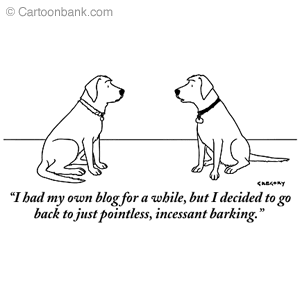Welcome to the Early Modern Carnivalesque!

Thanks to all those who nominated posts! Sharon of Early Modern Notes was especially forthcoming with great early moderniana, and Another Damned Medievalist of Blogenspiel wrote two posts especially for Carnivalesque! I gathered the rest of the flotsam and jetsam below...but without further ado....
Good reads to delight your eyes, thrill your brain, and carry you through the beginning of the semester:
To begin our Carnivalesque experience, Another Damned Medievalist wrestles with the perennial periodization question: what is early modern? You can read the Quick and Dirty Version or the Long and Punch-Drunk Version. Those of us constructing syllabi and facing the dreaded question, “but when did the medieval end and the early modern begin?” now have a guide.
The Little Professor examines literature on the death of Anne Boleyn. Perhaps Anne Boleyn had Elizabeth’s birth caul preserved in the manner suggested in the V&A’s Tudor and Stuart galleries. On other news of early modern England, Sharon and her readers all have lots to say about duels.
For the History of Science folk among us:
Siris brings us an interesting and informative post about Nicholas Steno. Copernicus Sashimi points out some great history of science teaching resources.
At Giornale Nuovo, a great article about Swedish witchcraft. (Recently one early Americanist has suggested that understanding witchcraft outside of England and North America might help us better understand Salem in 1692.) Giornale Nuovo also has some good information about engravings.
If early illustrations interest you, the Library of Congress has an amazing online exhibit on woodcuts in early printed books called “Heavenly Craft.”
In addition to great engravers, the Low Countries also produced great artists. Chris Arlidge tells us all about Rembrandt. Other important Dutch stuff: a serious history of windmills from the folks who write the “Curious Orange” column at Radio Nederland Wereldoemrop. And, something fun about the man who tilted at windmills.
Lewis Hyde reminds us that intellectual property once had a different meaning.
On the survival of a language invented by the Jesuits to better communicate on the coast of Brazil.
Some great maps of eighteenth-century London
Piratical commentary courtesy of Snarkout and a reminder that September 19 is Talk Like A Pirate Day.
I HATED the Mel Gibson flick The Patriot. This post amusingly takes you through the whole movie, leaving no distortion, outright lie, or instance of bad acting un-commented-upon. In other mythbustings of American History, Jeremy Bangs tell us what the First Thanksgiving was really all about.
How was childhood in the late eighteenth century experienced? Two Dutch historians have unearthed the diary of Otto van Eck, who died of tuberculosis at the age of 17 in 1798.
Now, beyond Europe and North America:
The tale of a tale, stretching from the sixth to the nineteenth century, at Chapati Mystery.
Sphinx writes about the Ottoman Empire and its weaponry.
And, Frog in a Well tells us that Early Modern Japan will now be an online publication.
I wished upon many stars for more non-European posts, but received few nominations and was unable to find many on my own. Remember, the whole world has an early mod history!
The next Carnivalesque will be ancient/medieval, hosted by Alun on about 9 October. There will be a special theme. Email inquiries/nominations to carnivalesque AT archaeoastronomy DOT co DOT uk.
Truth Laid Bear UberCarnival


